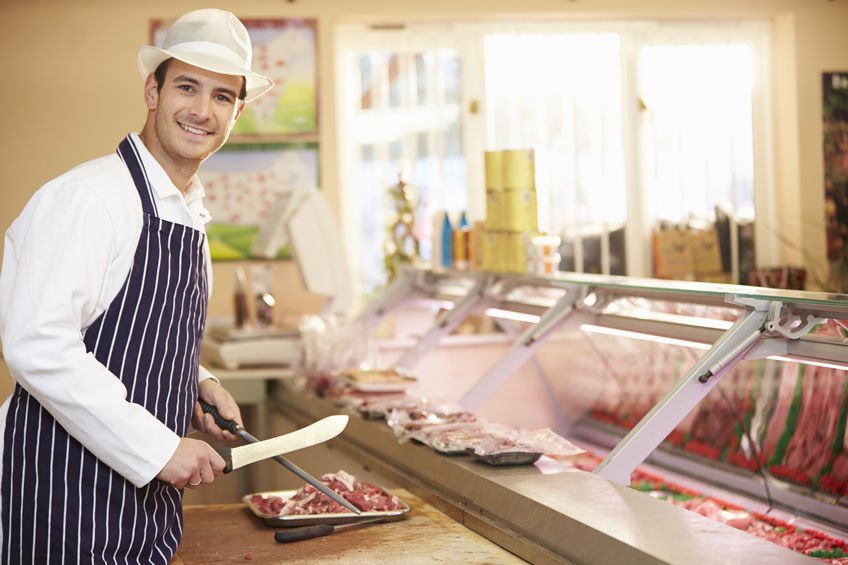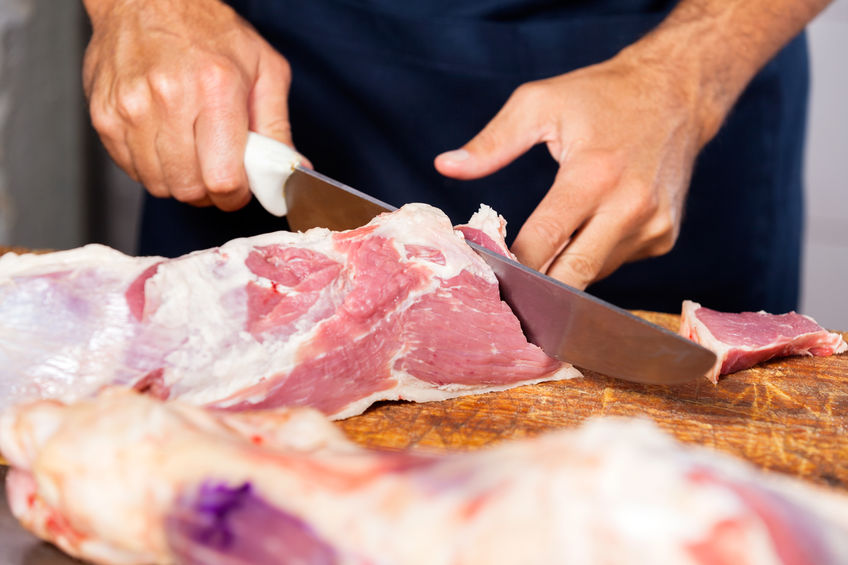
Got a Meaty Question?
Got a Meaty Question?
Why and how you should talk to your butcher for all your meat related concerns.
You shouldn’t settle for standard pre-packaged meat from the freezer section of the supermarket. Sure, it can be intimidating to talk to strangers, so you let your phone do the work for you whenever you have a question about meat- whether it’s finding the right cut, how to prepare it, how much of it you will need, and so on- but don’t let that stop you from fully enjoying the wonderful flavors and textures that different meats can offer.
There’s no one better to answer all your questions than your local butcher- they’ve been handling meat for a very long time, know everything there is to know about choosing, cutting, preparing, and cooking meat, and love meat more than you ever will.
 Got a Meaty Question?
Got a Meaty Question?
If you really want to make the most of your trip to the local butcher, don’t be afraid to ask questions. Your butcher is more than happy to answer them. See, when you buy from a local butcher, you are not only paying for the meat, but for the entire service.
Really, they are more approachable, knowledgeable, and helpful than you may think. Here’s why:
They can help you find what you’re looking for.
Don’t be afraid to ask your butcher for a meat cuts 101, or let them know what you have in mind so they can suggest the perfect meat for you. Try this guide on how to narrow down your options:
- The type of meat you want (beef, pork, poultry, lamb, wild game)
- Bone-in or boneless?
- Preferred cooking method (grill, roast, bake, pan sear, broil, etc)
- Desired flavor (mild or deep) and tenderness (tough or tender)
From there, you can take your pick, or go all out and experiment until you find your favorite. Don’t shy away from the lesser known cuts that may be just as tender and juicy as the ones you are used to, and are even cheaper and meatier. As long as you keep an open mind, the sky’s the limit.
Your butcher can even help you with the size, weight, thickness, and amount of meat that you should get, so it’s really a custom, personalized experience just for you.
They can cut it just the way you want it.
Think of it this way- you’re going to the local butcher because you don’t want to settle with standard, pre-packaged meat. So, don’t shy away from requesting exactly what you want with the meat cut you’re ordering.
Your butcher is happy to do way more than cutting the meat into different retail cuts. You can ask them to prepare the meat, such as by deboning, cubing, trimming, trussing, tying, or de-fatting it. More often than not, these services don’t cost extra (there’s no harm, of course, in tipping, especially if your butcher went above and beyond for you).
One thing to remember, however, is that butchers may have a couple of rules or do’s and don’ts, and may steer you away from certain things you want done with your meat- and for good reason. No, they are not being stiff and uncooperating. They know what’s best and what will keep the meat viable and what will preserve its tenderness, flavor, and so on.
They can guide you on your meat filled journey.
Your butcher’s awesome service doesn’t end once you choose what meat to buy. They can offer helpful tips and valuable information on things such as:
- Where your meat comes from, like whether it is locally sourced, humanely raised, fed with a natural diet, is antibiotic and hormone free, and so on
- How to check the meat quality and freshness, such as by looking at the color and vibrance, texture and juices, marbling, and other factors
- The best ways to prepare and process the meat (if you want to make some sausages, smoked meats, or snacks) or to cook and serve it, as well as what ingredients, garnishes, and spices would go well in bringing out the meat’s wonderful flavors
- How to properly and safely store meat and for what periods of time, so you can have a steady supply of delicious meat that is safe to eat at any given time
Really, anything you need to know about meat, your butcher has all the answers you can possibly need!


